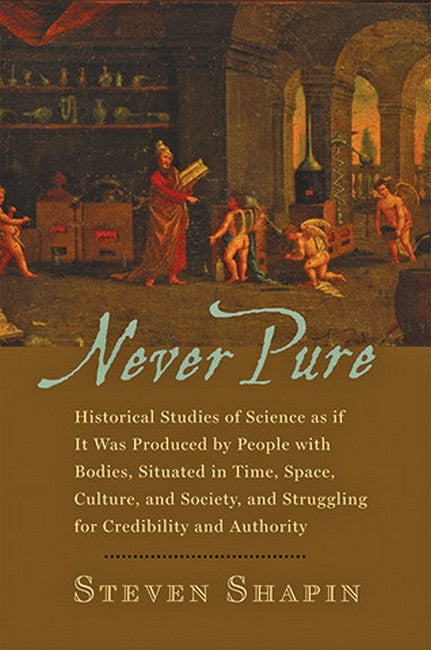Preface
1. Lowering the Tone in the History of Science: A Noble Calling
Part I: Methods and Maxims
2. Cordelias Love: Credibility and the Social Studies of Science
3. How to Be Antiscientific
4. Science and Prejudice in Historical Perspective
Part II: Places and Practices
5. The House of Experiment in Seventeenth-century England
6. Pump and Circumstance: Robert Boyles Literary Technology
Part III: The Scientific Person
7. ""The Mind Is Its Own Place"": Science and Solitude in Seventeenth-century England
8. ""A Scholar and a Gentleman"": The Problematic Identity of the Scientific Practitioner in Seventeenth-century England
9. Who Was Robert Hooke?
10. Who Is the Industrial Scientist? Commentary from Academic Sociology and from the Shop Floor in the United States, ca. 1900ca. 1970
Part IV: The Body of Knowledge and the Knowledge of Body
11. The Philosopher and the Chicken: On the Dietetics of Disembodied Knowledge
12. How to Eat Like a Gentleman: Dietetics and Ethics in Early Modern England
Part V: The World of Science and the World of Common Sense
13. Trusting George Cheyne: Scientific Expertise, Common Sense, and Moral Authority in Early Eighteenth-century Dietetic Medicine
14. Proverbial Economies: How an Understanding of Some Linguistic and Social Features of Common Sense Can Throw Light on More Prestigious Bodies of Knowledge, Science for Example
15. Descartes the Doctor: Rationalism and Its Therapies
Part VI: Science and Modernity
16. Science and the Modern World
Notes
Index
Request Academic Copy
Please copy the ISBN for submitting review copy form
Description
""A highly labored style of writing is deployed to perform scholarly virtues that go by names like careful, accurate, and rich.""

